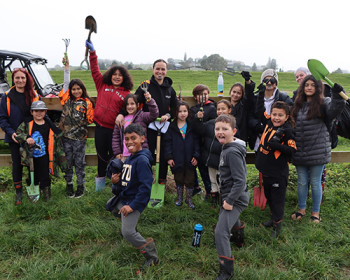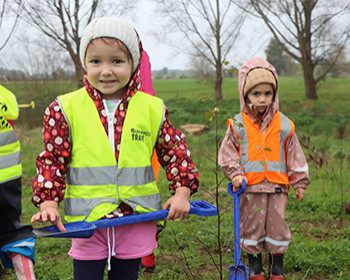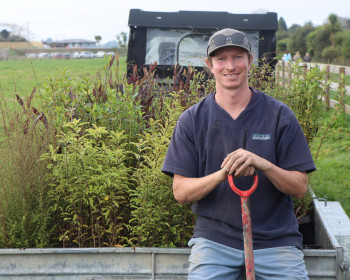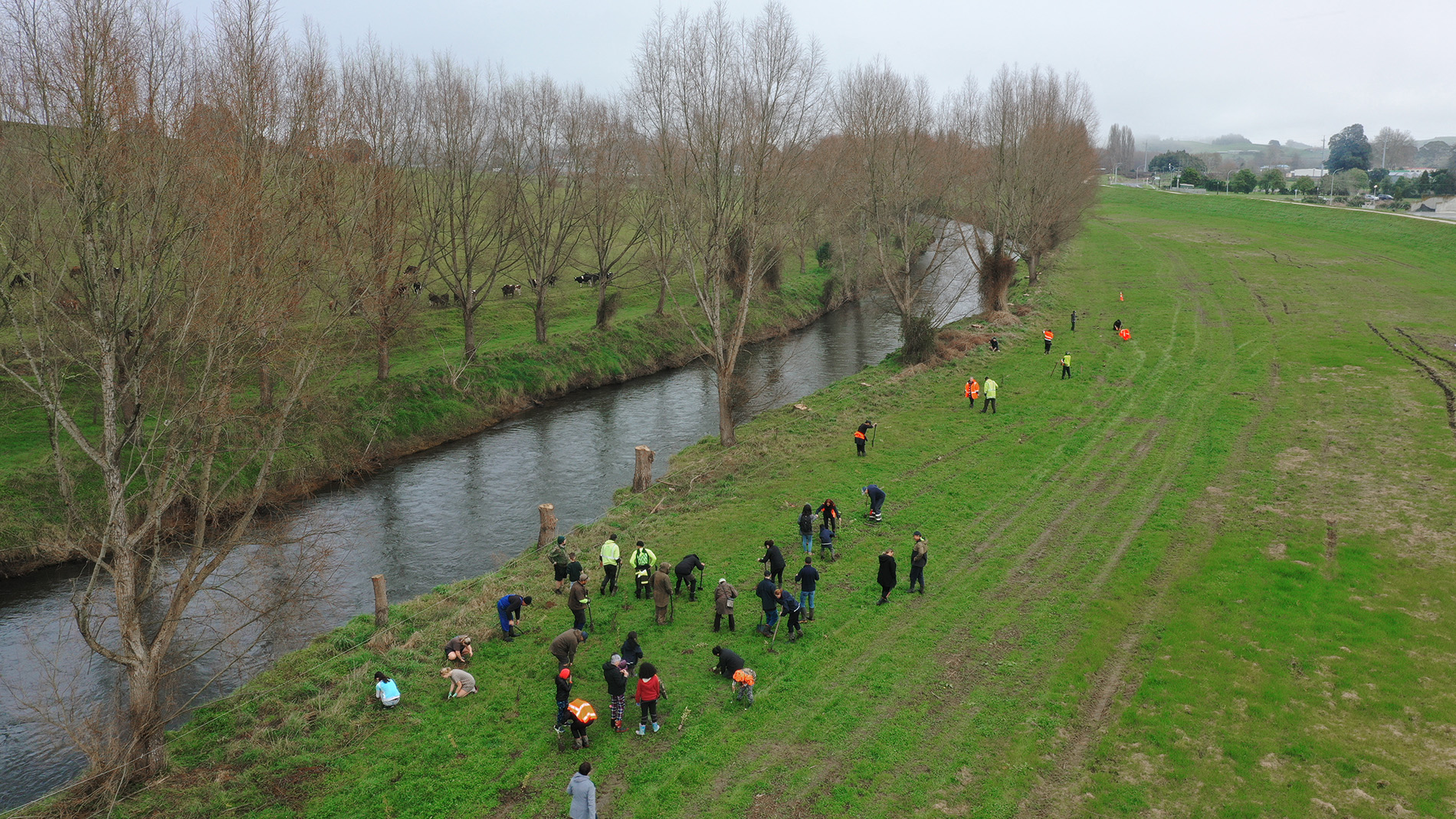“Once this river was completely different to what you see now. There were so many bends, and it was a time of bounty during flood. ”
- Wikitōria Tāne, Te Kotahitanga Marae
A partnership planting project in Ōtorohanga on flood protection land isn’t just about stabilising the banks of the Waipa River – it’s about reconnecting with the awa.

Tamariki from Ōtorohanga Primary School’s rumaki reo (total immersion) class were fully committed to planting.
“When you plant, you create a habitat and a home for all the native species to come home,” Wikitōria Tāne, from Te Kotahitanga Marae, told students gathered to help with the last of the planting of the two-year project.
Tamariki from Ōtorohanga Primary School’s rumaki reo (total immersion) class, Ōtorohanga College and Little Kiwis Corner early childhood centre turned out to the community planting day last week, helping to put nearly 3000 plants in the ground as part of the Te Ara a Waiwaiā Waipa River enhancement project, initiated by local iwi and led by Ōtorohanga District Council.
Te Ara a Waiwaiā project, which is funded by the district council, Waikato Regional Council and Waikato River Authority, has seen the maintenance of matsudana willows over 2.2 kilometres of riverbank and nearly 6000 native plants planted into a 10-metre riparian margin along the river.
Since 2015, a partnership between iwi marae, Waikato Regional Council, Waikato River Authority and local landowners has seen the planting of
150,000 native plants on both sides of the Waipa River and its tributaries.

Jordyn and Luci (from left) from Little Kiwis Corner arrived with their own spades.
Te ara means pathways, and Waiwaiā is the taniwha associated with the Ngāti Maniapoto people, Wikitōria told the children.
“She travels everywhere,” Wikitōria said.
“But once this river was completely different to what you see now. There were so many bends, and it was a time of bounty during flood.
However, after widespread flooding in 1958, land – much of it Māori land – was taken under the Public Works Act 1928 to straighten the Waipā River and Mangawhero and Mangapu Streams. Stopbanks designed to contain 100-year flood events were also constructed and willows planted to hold the riverbanks.
“This project is about reconnecting with the awa,” said Wikitōria. “And if we are bringing people back, we have to be able to tell these stories, and they need to be able to tell them too.”
Ōtorohanga District Council Manager for Community Development
and Wellbeing Nicky Deeley said the community planting day was
about giving the Waipā River some much needed love and kindness.

Waikato Regional Council River Management Officer James Lineham.
“This project aims to enhance biodiversity values, river stability and community access and enjoyment of the Ōtorohanga township flood protection land.
“A number of years ago now, a walkway was constructed along the top of the stopbanks for the community to enjoy. All this work is about restoring connections, engagement and pride in our awa and the natural environment.”
Waikato Regional Council River Management Officer James Lineham explained to the students that the plants they were planting were suitable for the free draining Waipa River floodplain to be resilient in flood, drought and frost.
“The plants are robust and would naturally grow here,” he said.
“We’re planting them 2 metres apart, which is quite important. When the water comes up, it needs to be able to move around these plants. For that reason, the plants are also single leader plants, so they don’t obstruct the flow of water and it also means that when they’re mature you’ll be able to walk through them, down to the awa.”



To ask for help or report a problem, contact us
Tell us how we can improve the information on this page. (optional)